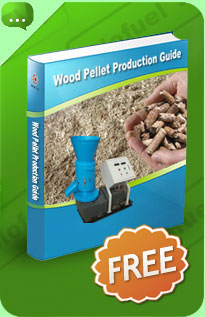Home Pellet Mill
Home Pellet Mill
Producing your own fuel pellets using a home pellet mill provides extensive appeal to some people. Owning your own home pellet mill can bring several advantages. First of all you can produce your own fuel from the resources available for you. The resources may be local sawdust, and even straws, grasses as well as cardboard and paper. Producing your own fuel pellets not only can bring a source of energy independence; but also can generate some extra earnings. Most small home pellet mills produce about 100 kilograms per hour. Since the majority of homes just use between 3000 and 5000 kilograms annually, even a small home pellet mill has the capacity to produce much more than the owner would require. This brings some options, either the pellet mill could be a group purchase between a collection of pellet users, or one person could produce the pellets then sell the pellets into the local area.
Pellet Mills For Home Use and Equipment
At BiofuelTech we provide a consultation service on pellet production equipment, including some pellet mills suited to home use. To produce good quality pellets, your raw material requires certain properties. First it must be in small particles of either 6mm or below. The raw material must also be fairly dry. However some moisture is required for the pellet process to work. Finally to produce consistent quality pellets, it is important to provide the pellet mill with consistent quality raw material. In this sense pellet production is much like cooking, and will take a few tries to get it right. To find out more please visit the BiofuelTech website.
Flat Die Pellet Mill and Small Pellet Mills
The most compact kind of small pellet mill suitable to be a home pellet mill is the flat die pellet mill. The flat die design pellet mill was the first design, utilized for animal feed pellet production. The design is very simple and compact; therefore it is possible to produce very basic versions.
The Wood Pellet Production Pellet Press
Producing wood pellets is not just always about only the pellet mill, it depends on what your raw material is like. For example if you want to process logs into pellets there are several stages of size reduction which must take place first. Firstly the log must go through a chipper. Once into chips, these must also be reduced in size; therefore the chips are then placed in a hammer mill. Through high speeds of the hammers impacting on the wood chips, the chips shatter into small particles. A hammer mill has an internal screen, to stop oversized particles from escaping the hammer mill until a 6mm particle size is achieved. The particles are then taken from the base of the hammer mill by a fan and then separated from the air stream through a cyclone separator. The particles are now small enough for the pellet mill. However the particles must also be dry enough. There are several drying solutions used depending on the productivity required.
The two main drying solutions are pipe dryers and rotary drum dryers. Pipe dryers carry the wet particles in a hot air stream to remove moisture. Pipe dryers are a very cheap drying solution; however they cannot deal with high moisture content materials.

